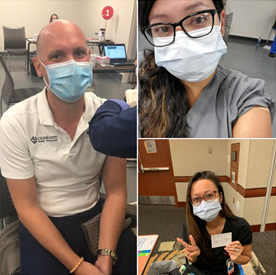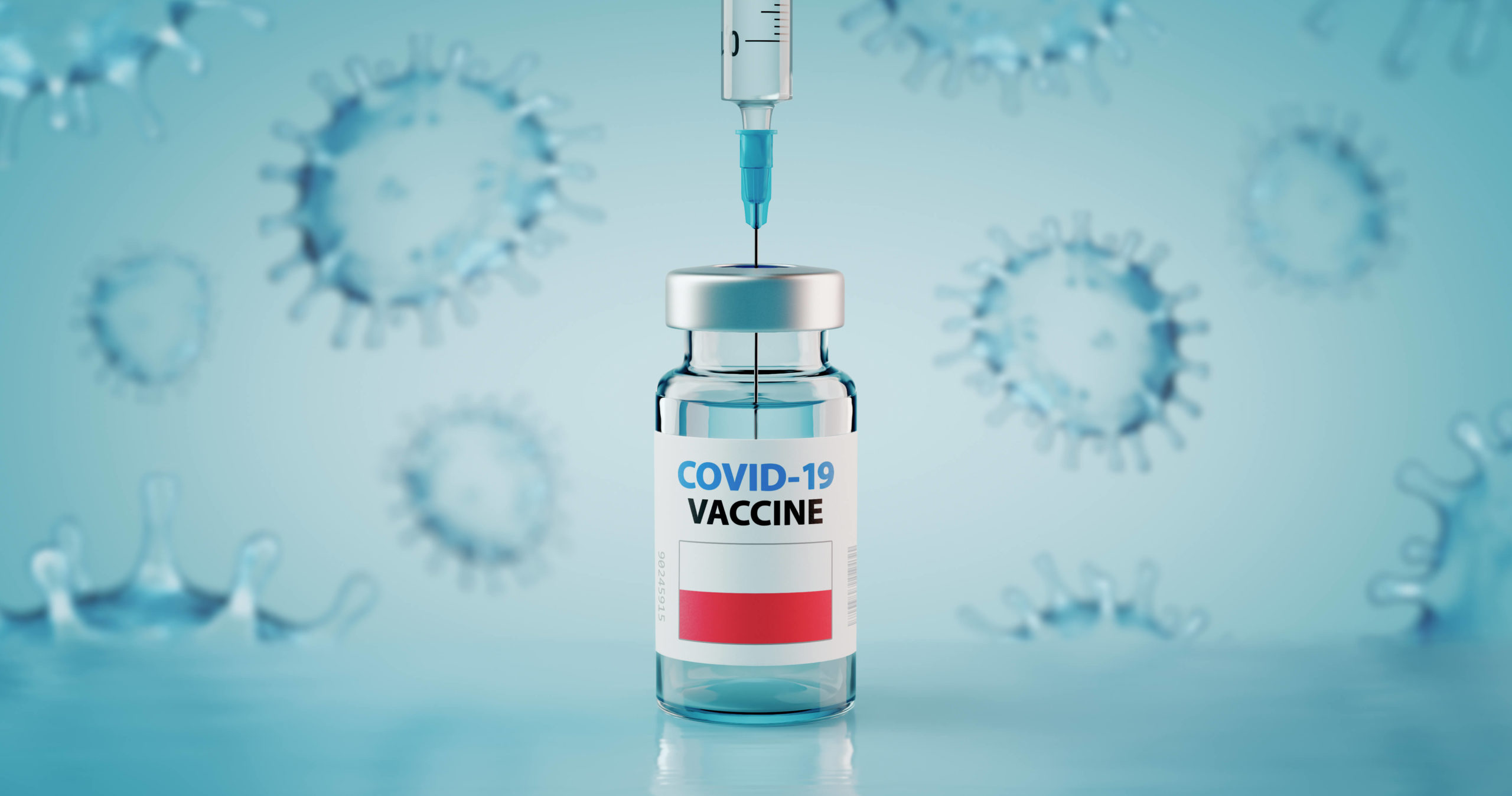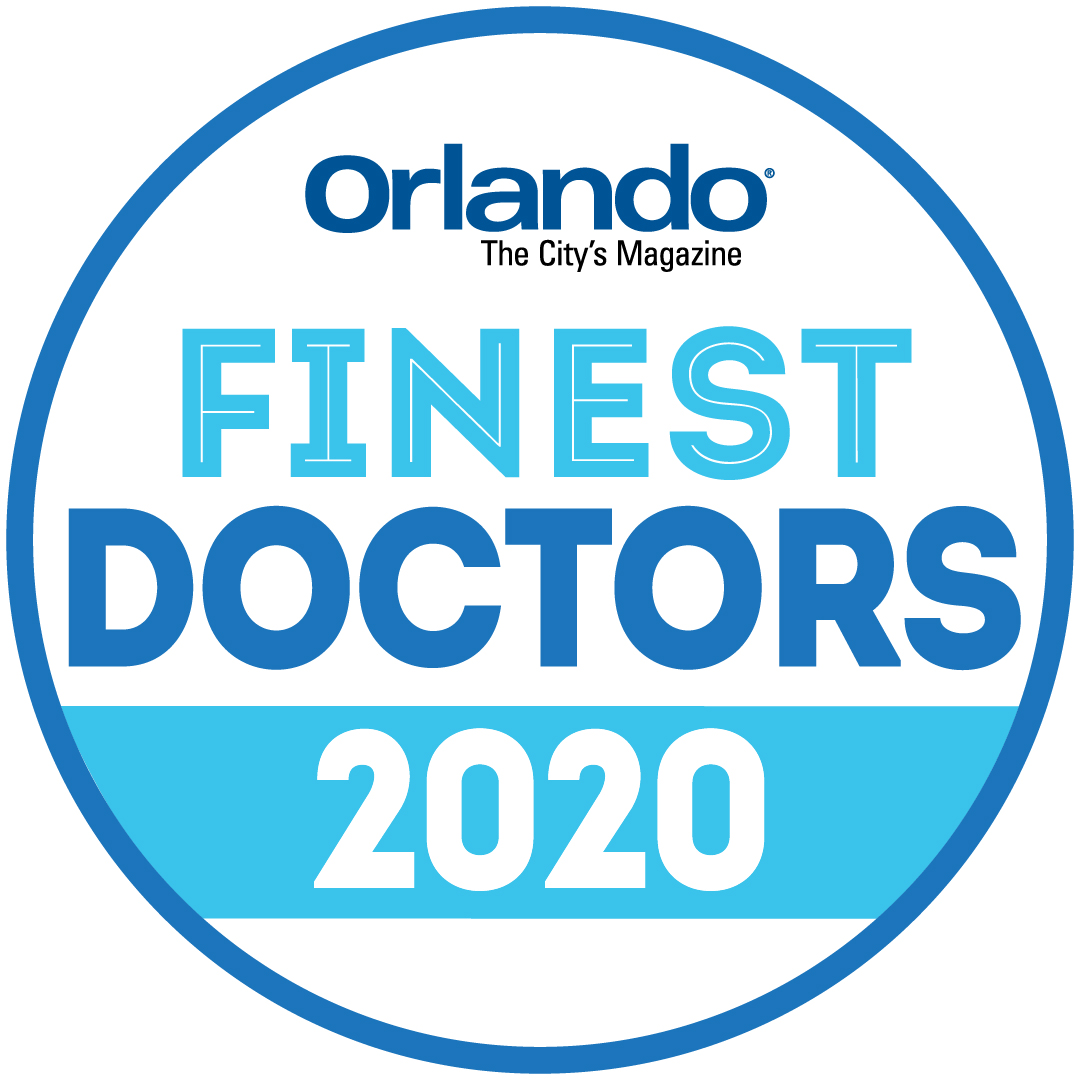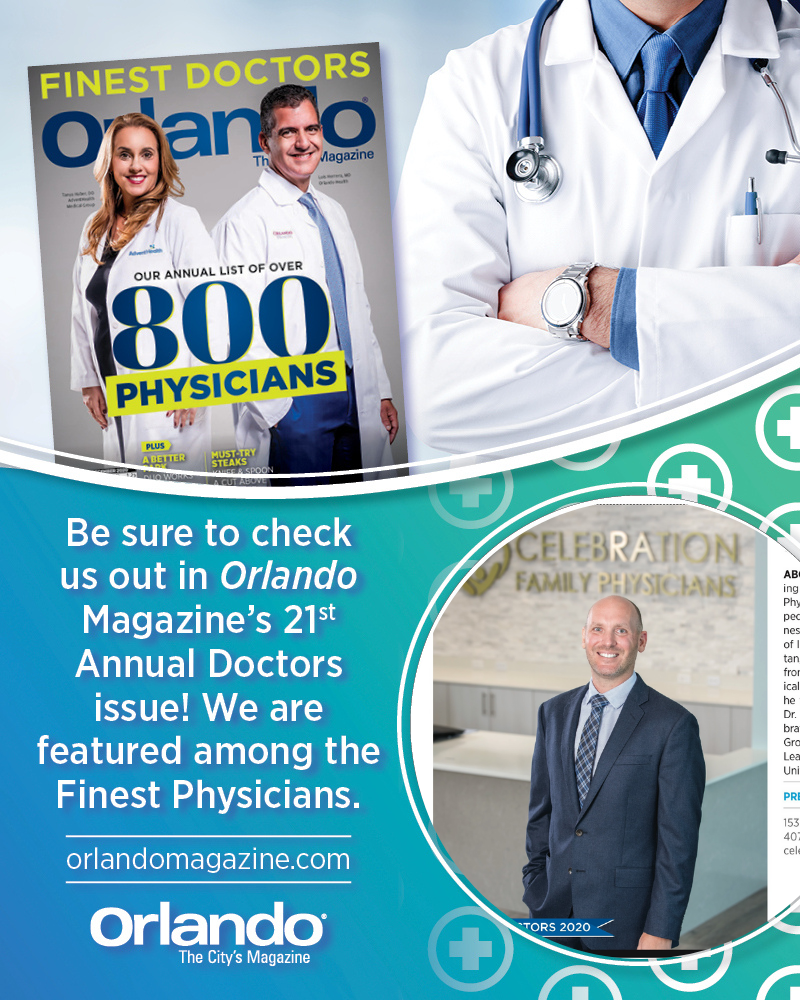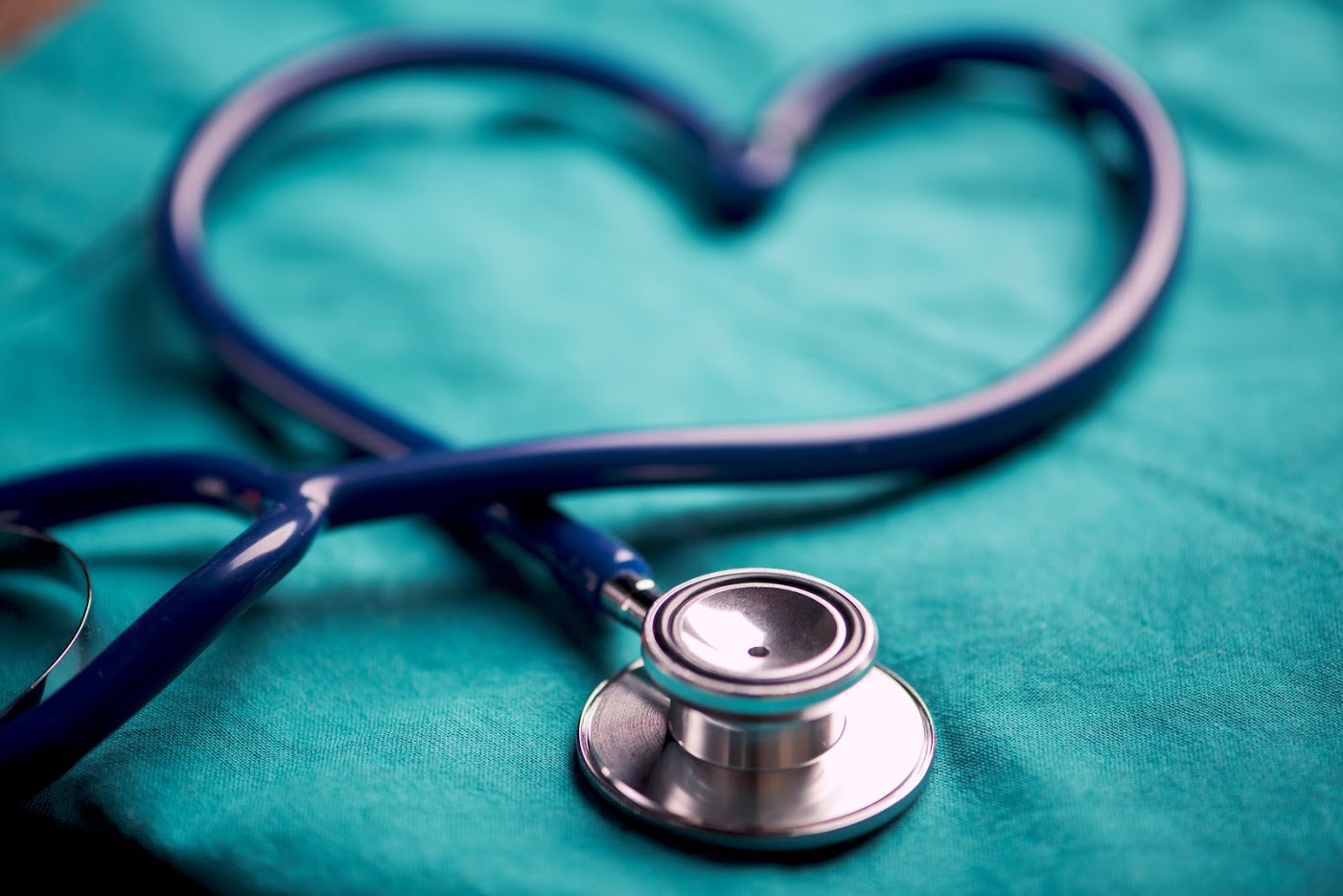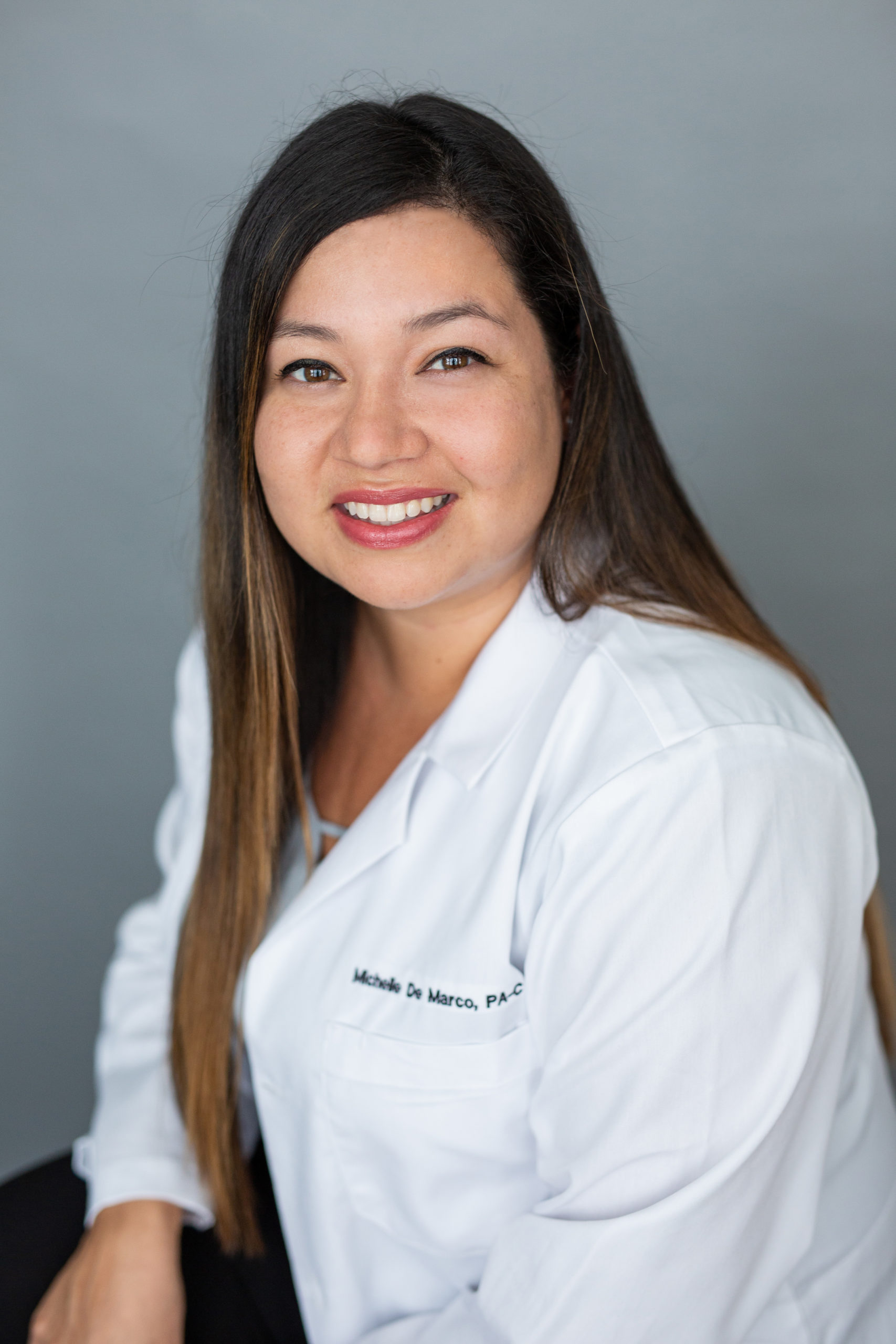Overview
Coronavirus Disease 2019, commonly called “COVID-19”, is the name of the disease caused by the virus Severe Acute Respiratory Syndrome Coronavirus 2 also know as SARS-CoV-2. The first case was reported in Wuhan, China in December 2019. The virus is contagious and quickly spread around the world. The World Health Organization declared COVID-19 a pandemic in March 2020.
Coronaviruses are a family of viruses that cause illnesses such as the common cold, severe acute respiratory syndrome (SARS), and Middle East respiratory syndrome (MERS).
The U.S. Centers for Disease Control and Prevention (CDC) and WHO are monitoring the pandemic and continue to post updates on their websites.
Vaccinations are the best way to prevent the spread of infection. Dr. Craig Yunk at Celebration Family Physicians will administer the vaccination once it becomes available.
Symptoms
Symptoms of coronavirus disease 2019 vary from person to person and can cause mild to severe illness and, at times, can lead to death. About 85% of people have mild symptoms. Symptoms in children tend to be milder. About 14% have severe illness requiring hospitalization with about 5% requiring care in an Intensive Care Unit (ICU).
The incubation period ranges from 2 to 14 days. Symptoms typically appear within four to five days of exposure but may take up to 2 weeks for symptoms to appear. Some infected people do not have any symptoms.
Symptoms may include:
- Fever
- Chills
- Dry Cough
- Shortness of Breath
- Fatigue
- Muscles Aches
- Headache
- Loss of Appetite
- Loss of Sense of Smell
- Loss of Sense of Taste
- Other symptoms have been reported include Nausea, Diarrhea, and Rash
Predictors of Severe Disease
- Older age
- Comorbidities such as Heart Disease, Chronic Kidney Disease, Chronic Liver Disease, Chronic Lung Disease, Diabetes, Hypercholesterolemia, Hypertension, Immunocompromised State, Obesity, Sleep Apnea, Sickle Cell
- Low oxygen levels
Complications
- Pneumonia (an infection of the lungs)
- Low oxygen levels
- Stroke
- Blood Clots
- Death
Diagnosis
The tests used to diagnose COVID-19 is the Antigen Test and Polymerase Chain Reaction (PCR). The tests are performed by collecting fluid in your nose using a swab. The antigen test checks for proteins from the virus and the PCR test checks for viral genetic material (coronavirus RNA). The antigen test is faster but not as accurate thus more likely to give “false negative” results. If COVID-19 is still suspected, a PCR test may be recommended to confirm the negative test result.
The antibody test is a blood test that detects the presence of IgM and IgG antibodies. The clinical significance of these antibody tests is still being determined.
Causes
COVID-19 is caused by the SARS-CoV-2 which is in the family of coronaviruses. Various coronaviruses cause different illnesses including the common cold, SARS and MERS.
The SARS-CoV-2 is contagious spreading from person to person. The virus spreads by tiny particles when someone with the infection coughs, sneezes or talks. The particles can easily travel through the air and land in the mouths or noses of people nearby and on surface or objects. In enclosed spaces where the same air circulates, the virus particles can spread to other people who are farther away. Touching a surface or object that has the coronavirus on it and then touching your nose, mouth or eyes may be another way of contracting the virus.
The virus can spread even when an infected person is not symptomatic.
Prevention
- Social Distancing of at least 6 feet; Avoid crowds; Limit attendance to events and gatherings; Limit eating at restaurants
- Limit exposure (15 minutes of exposure increases risk)
- Mask wearing in public
- Wash your hands with soap and water frequently for at least 20 seconds; if unable to wash your hands have hand sanitizer with at least 60% alcohol readily available
- Avoid touching your face
- Avoid Traveling
- Quarantine for 14 days after last exposure if close contact with a person with COVID-19
- Confirmed or Suspected COVID-19 isolate at home
- Clean commonly used surfaces frequently
- Get Vaccinated
Vaccination
Vaccines help prevent the spread of diseases. Several COVID-19 vaccinations are being developed and becoming available.
If most people get the vaccination, the virus will stop spreading so quickly. When enough people are immune from the disease either from receiving the vaccine or recovering from the disease, it provides indirect protection to those who are not immune to the disease. This is referred to as “herd immunity”. Examples of diseases that were once common but now rare in the US because of vaccines achieving herd immunity are measles, polio and chickenpox.
The pandemic will end when we achieve “herd immunity”. It would be almost impossible achieve this without a vaccine or allowing a lot of people to get infected (some getting seriously illness and/or dying).
After you receive the vaccine, it will still be important to practice social distancing, wearing a face mask in public and hand washing for now. The vaccine is not 100% effective.
It is important to get the flu vaccine with the ongoing coronavirus pandemic. The flu and coronavirus can cause similar symptoms. Preventing the flu and reducing severity of symptoms can lessen the number of people needing to stay in the hospital.
Where can an individual included in Executive Order 20-315 receive a COVID-19 vaccine?
Please see the table below which contains designated general vaccine providers. Dr. Craig Yunk at Celebration Family Physicians will administer the vaccination once it becomes available.
| Eligible Populations Able to Receive Vaccine Under Executive Order 20-315 |
Primary Vaccine Providers |
Additional Vaccine Providers |
| Long-term care facility residents and staff |
CVS and Walgreens |
Florida Department of Health and Florida Department of Emergency Management |
| Persons 65 years of age and older |
County health departments |
Hospitals and other community health care providers, including a federally qualified health center (FQHC) |
| Health care personnel with direct patient contact |
Hospitals and COVID-19 vaccine providers |
County health departments and other community providers, including a FQHC |
|
Hospital providers |
|
